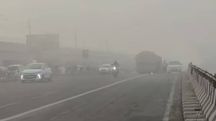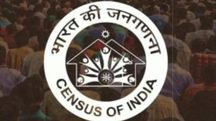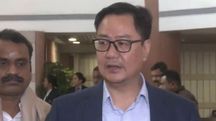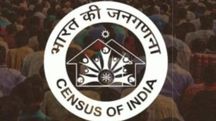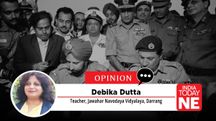Govt's data apathy halts an effective response to pandemic: Report
 pandemic
pandemicNEW DELHI: A new report has revealed that the absence of benchmark survey data in the pre-pandemic period, the abrupt halt to most survey work during the pandemic, and the lack of any state initiative to conduct quick surveys have led to a dangerous data vacuum.
It was published on Mint recently that as the second wave of covid-19 ebbs in India and policy focus shifts to the economic damage caused by lockdowns for the second consecutive year, economists are finding it hard to assess the extent and spread of the damage.
From this, it can be concluded that policymakers are being unable to design an effective response to the pandemic. People forced to migrated or lost their livelihoods are being unable to avail of much state assistance beyond free foodgrain.
Aggregate measures of economic activity such as the quarterly gross domestic product (GDP) figures do not provide any indication of the distribution of income across households and may generate a false sense of complacency, economists said.
Also Read: Nagaland’s Newest District Noklak To Get 50 Bedded Hospital; CM Thanks…
The GDP data largely mirrors the performance of the corporate sector and extrapolates that performance to the rest of the economy. This problem has been more acute in the new GDP series introduced in 2014-15.
In normal years, such extrapolations may be okay, but in an abnormal pandemic year, the quality of GDP is much worse than what it would otherwise be, said Pronab Sen to Mint, chairman of the standing committee on economic statistics (SECS) of the ministry of statistics and programme implementation (Mospi).
While the periodic labour force survey (PLFS) has continued largely unhindered as it is based on a rotating panel of households that can be interviewed for subsequent rounds even over the phone, most other official household surveys were disrupted during lockdowns, Mospi officials said.
Mospi officials requested the health ministry to vaccinate survey enumerators on priority, but this was not done, a person with direct knowledge of the matter said on condition of anonymity. Queries sent to spokespersons of Mospi and the health ministry on Friday remained unanswered.
Vaccinations for frontline statistical staff would have helped expedite surveys, said R. Nagaraj, economist and visiting faculty at the Centre for Development Studies, Thiruvananthapuram.
The latest consumption expenditure survey conducted in 2017-18 was junked by the government in 2019, citing divergence with other administrative data sources, a decision that was questioned within and outside the statistical establishment even then.
Copyright©2025 Living Media India Limited. For reprint rights: Syndications Today


